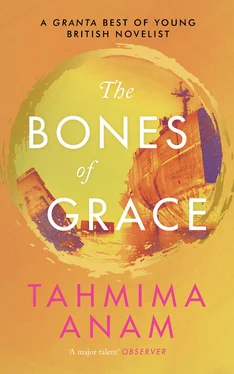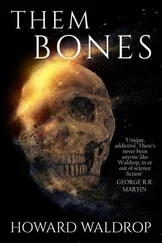Bettina is doing research on a group of transgender environmentalists in Nepal. She says we are in the age of Anthropocene, when humans rule the world, dictate the conditions and possibilities of life, shorten or lengthen the survival of the planet. The erasure of nature is a cynical thing, to be sure, but looked at in another light, we can say that, for a moment, until the world collapses, we live on a planet shaped by humans. Not by nature, not by time, or history, or dinosaurs, but by us.
Bettina has inspired me to write this:
Fatema Ansar, My Mother
Fatema Ansar’s dreams were too big for her life. Which is to say, her life demanded a small set of dreams, or, better yet, no dreams at all. If she had been one of those people who accepted her fate without a word of protest, who rationalised her poverty, if she said it had all been written on her forehead before she was even born, so that to rail to against it would not just be futile, but against the natural order of things, she might have lived a happier life. She might have lived. Instead, she had thoughts. She lay awake at night when the moon was full and put her on stage like a spotlight, and she would imagine all the other lives she might have had. That she might go to school someday, that she might leave the village and go to Mymensingh town, that she might marry and have daughters who would also learn the numbers and the letters, that she might die with a smile on her lips, satisfied she had done something to advance herself in the world. But, modest though this set of possibilities may sound, for Fatema Ansar, they were poison, because Fatema’s life happened at the very heel of fate. There was nothing to absorb even the smallest dream for a girl like her .
It began with some promise. There was no school — her parents were too poor for that — but she did marry a man who by all accounts would have probably turned out to be not so bad, who would have kept her in food and clothes and might even have given her the occasional tender glance as the years softened him, had he not been bitten by a snake a few months after the wedding, which was nothing more than a kazi reciting a few prayers over their heads and the same food they ate every day, and after that first night, when he had made love to her with violence and held her tightly to his chest, telling her he had put a son in her womb, he left for the East, because the harvest was poor and he had sold himself to a farmer in Khulna for the spring planting, and they said goodbye in the hush of the hut they shared with his parents and his three younger sisters. And all through the months of Ashar, Srabon, and Poush, she waited, her pregnancy showing early, and when the news came that he had died where he fell, that the farmer was sorry but his body could not be sent home, the expense was too great, his parents turned on Fatema, and in the eye of their grief, their only son and their only hope dead in the bloom of his life, they said, ‘Go, you are no longer eating our rice.’ The heel of fate. And she went home, home to her parents, who had been cursed, as had her in-laws, with an abundance of daughters, one of whom they had sent to Dhaka to work as a servant, not a choice now for Fatema, because she would be saddled with this fatherless child, and that is when her sister sent word. That there was a family. God had not blessed them with an issue. Would she? Could she? Her parents sat silent over their empty fields and accused her of being hungry, as if the enormous bulk of her pregnancy was the food she was stealing from their plates. When the babies came — yes, there were two — she despaired. Girls. The heel of fate. Would they take them both? Yes, they would. They came to the village in a car, their pockets bulging with money. And, just as she was about to hand them over, as she passed one and was about to pass the other, the smaller one, her shoulders pulled away from the transaction, and she said, ‘This one I will keep.’ There were arguments, her parents came out of their hut and pleaded with her, but Fatema’s dreams were bigger than her life, and she stood resolute, numbing the pain of losing one with the consolation of the other, imagining a world in which she would never have to give up a child because she was hungry, and she tied the money to her sari and took the smaller one away from the village and to the East, where her husband had died, not knowing if she would find the place he was buried, but pulled there by the force of her will, and the farmer, sorry for her, had offered her to the imam, who had given her a small room behind the mosque, and that is where she settled, a woman alone with a child, dreams too big for her life, the first act of will she had ever committed giving her a small measure of happiness. It wasn’t much, but it was something .
In the absence of knowledge, I choose imagination. I choose to know my mother through my dreams, and the words that come from my dreams. I can draw a picture and then inflate it so that it resembles a life, a history, something I can hold on to. In the age of the Anthropocene, the human rules, and there is nothing more human than to dream.
Of my sister, I knew slightly more, because of Anwar (and because of me — I knew, had always known, exactly what she looked like). He tells me that when she had believed she was accompanying him to Dubai, she had said she would like to swim in the sea and have her foot brush against a large creature, a timi. ‘Timi’ is the Bangla word for ‘whale’. My sister, too, would have searched for Ambulocetus . Perhaps we would have travelled to Dera Bugti together, befriended Zamzam together. Perhaps we would have both fallen in love with you. Never mind, I love you enough for both of us, now that I have fallen in love with you twice and lost you twice and had a twin who has died, making my hopes twice that, you see, of a normal person’s.
We tried to remain together, but looking back, it was obvious from the start that it would not be enough to try and become a family when all there was to connect us was a desire, however earnest, to make amends for the past. After four months, we called Anwar and asked if he might like to see his daughter. Perhaps she could stay with him for a while, see if it suited her. We travelled back down the country to Anwar’s village in Khulna. I was afraid his wife would refuse to take her in, but when we arrived Shona appeared to relax, squatting on a piri and sifting through the rice with Anwar’s mother. We left her there with a measure of satisfaction in our hearts, even though the separation was a complicated one. My mother, especially, struggles with the notion that certain barriers cannot be overcome by will alone. And I had to confront the fact that, even though something of the mystery of my life has now been solved, the fundamental aloneness of it will always be with me, like a scar that flattens and fades but refuses to disappear.
We visit her often. They come to our house for Eid every year and we sit around the table like a family and eat vermicelli and halwa. Anwar’s wife tells me she wishes to have a child, but one has not come along yet. I can’t say that we are intimate, in the way I imagined we might be. They hold themselves at a distance, expecting, perhaps, that our bond will break apart as abruptly as it materialised. But I live in hope that someday, perhaps when age and circumstance narrow with time, we will achieve an easier connection. I had a small glimmer of this when I asked Anwar to tell me his story. I wanted to know exactly how he had come to be on the beach that day, and he was surprisingly willing. We sat together last winter, and I wrote it down exactly as he told it.
There is the rest of the world, which seems very far away now. If you have read the newspapers, you will know that Ghulam Azam has died, that the country my parents love so deeply is as troubled as it has ever been, but also that it exists in a sort of ecstatic state, an escape artist overcoming, with only seconds to spare, every catastrophe that befalls it.
Читать дальше












